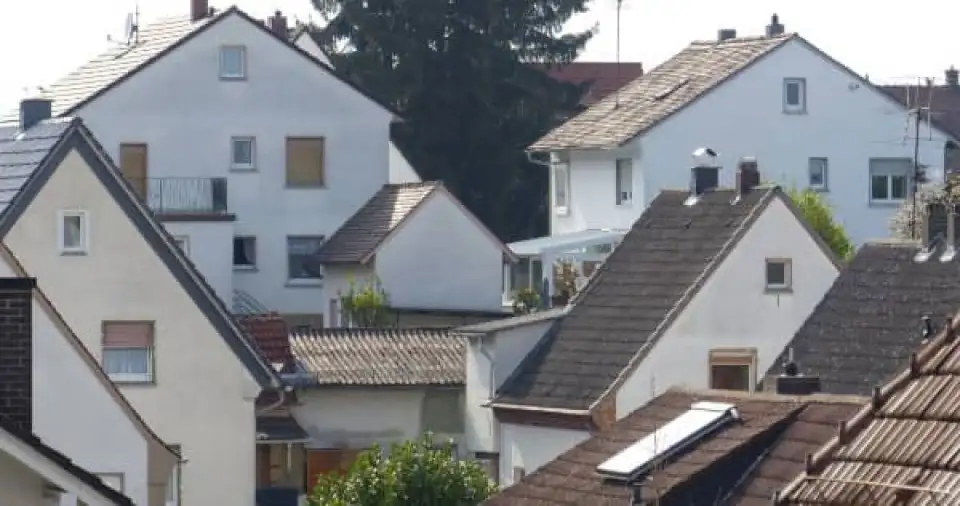
Darmstadt, Germany. The topic of energy efficiency is often woefully neglected in discussions on climate protection. However, buildings-related emissions can only be significantly reduced by consuming less energy for heating and cooling. The Passive House Institute presents its proposed solutions for a climate-friendly building stock in three “building blocks”: A substantially higher level of energy efficiency of buildings; on-site generation of renewable energy; and a change in the political framework conditions. This also means that mediocre quality of energy efficiency measures should no longer receive funding. In Germany, for example, the government has just decided to discontinue the subsidy for new builds of mediocre quality of energy efficiency.

The Passive House Institute has been carrying out research on highly efficient building construction and renovation for over 25 years. According to the research institute, governments can significantly reduce emissions in the building sector through three building blocks the institute proposes. This is the only way in which the climate objectives of the Paris Agreement can be achieved for the building sector. At the United Nations Climate Change Conference in 2015 held in Paris, 197 countries adopted this Agreement to protect the climate and avert a climate disaster.

Don’t burn fossils
"Emissions in the building sector are still much too high. We cannot continue to burn fossil fuel such as oil, gas and coal in order to heat our buildings. The building blocks we developed make it possible to implement an existing building stock that will effectively protect the climate and meet the Paris Agreement", explains Dr Jürgen Schnieders of the Passive House Institute.

Building block No. 1: Energy efficiency
#EfficiencyFirst! The Passive House Institute stresses that achieving a high level of energy efficiency in new builds and retrofit projects must be a priority. Excellent thermal protection of the building envelope is decisive for this and achievable through a climate-appropriate insulation, among other things. Ventilation systems with heat recovery can further halve the heating demand of these buildings. The hot water demand can be decreased through the use of well-insulated pipes, efficient fittings and heat recovery. The Passive House Institute recommends highly efficient heat pumps for the provision of heating energy and hot water.
Building block No. 2: Efficiency & renewables
The Passive House Institute further explains that for the success of the energy transition, it is necessary to combine the energy efficiency of the building with the onsite production of renewable energy. In the case of new buildings and retrofits, a preferably large photovoltaic system should be installed on suitable surfaces. The heat pump can then be operated using this PV system. However, installing a PV system on actively heated buildings with uninsulated roofs, results in a missed opportunity for high energy savings. It also creates a barrier to implementing the energy transition. "Homeowners should therefore insulate their houses first. This is also financially worthwhile", explains Jessica Grove-Smith, co-initiator of the building blocks.
Building block No. 3: Political framework
The political framework conditions are also decisive for successful climate protection, continues Grove-Smith. As an example, the Passive House Institute also finds the German building energy act GEG as "incompatible" with the objectives of the Paris Agreement and advocates for more ambitious energy standards. This also makes sense economically. Financial incentives for highly energy efficient new builds and retrofits will increase industry motivation and uptake. "It would be counterproductive if a mediocre level of building efficiency continued to be funded. This also applies for heat generators which are not sustainable", explains Grove-Smith. The Passive House Institute is therefore in favor of ceasing funding for only moderate energy standards.
No accelerated retrofitting campaign
At the 25th International Passive House Conference in September this year, the Passive House Institute explained that for retrofits, the most economical solution with regard to total costs was to implement the ambitious EnerPHit standard. The EnerPHit standard was developed by the Passive House Institute for the retrofitting of existing buildings. If the renewal of building components is already planned, then these must be brought up to a future-proof, sustainable standard. By contrast, an accelerated retrofitting campaign with faster renewal cycles would be considerably more expensive. What is even more important is that in realistic terms, the designers and tradespeople required to implement this so-called ‘wave’ at short notice are simply not available, says Dr Jürgen Schnieders. The 30-minute presentation on the topic is available on YouTube (in German).

Already existing solutions
Scientifically proven building standards are already available, such as the Passive House standard and the EnerPHit standard, as well as reliable tools for energy balances. In addition, they are consistent with the climate objectives as the research Institute in Darmstadt clarifies. "It is a fact that highly energy efficient buildings protect the climate. At the same time, they offer significantly improved thermal comfort and a healthy living environment. Seen over the entire life cycle, these buildings are also more cost effective than less efficient buildings. We simply need to implement highly energy efficient buildings on a wide scale", says Schnieders.
Subsidies to end
In Germany, for example, the government has just decided to discontinue the subsidy for new builds of mediocre quality of energy efficiency: The subsidies for new constructions in the category “Effizienzhaus 55” will cease in February 2022. The German government now wishes to promote primarily those measures which generate the maximum possible CO₂ savings and will increasingly provide funding for energy-relevant retrofitting measures. "Now we must ensure also here that only highly energy efficient standards are applied. Otherwise, an opportunity for climate protection will be missed for decades to come", comments Jessica Grove-Smith of the Passive House Institute on this announcement by the government.